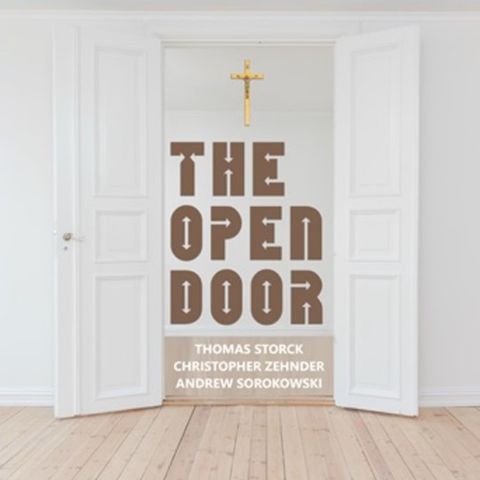WCAT Radio The Open Door (February 2, 2018)

Download and listen anywhere
Download your favorite episodes and enjoy them, wherever you are! Sign up or log in now to access offline listening.
Description
Catholic Teaching and the Death Penalty Catholic teaching offers a unique perspective on crime and punishment. It begins with the recognition that the dignity of the human person applies to...
show moreCatholic teaching offers a unique perspective on crime and punishment. It begins with the recognition that the dignity of the human person applies to both victims and offenders. It affirms our commitment to seek justice, comfort and support victims and their families, while acknowledging the God-given dignity of every human life, even for those who do great harm. Catholic teaching on human life is rooted in the belief that all life has inherent dignity and is a gift from God that must be respected and defended from conception until natural death.
In his encyclical The Gospel of Life, Pope John Paul II challenged followers of Christ to be “unconditionally pro life.” He reminded us that “the dignity of human life must never be taken away, even in the case of someone who has done great evil. Modern society has the means of protecting itself, without definitively denying criminals the chance to reform” (Gospel of Life, 27).
The Catechism of the Catholic Church explains that “the traditional teaching of the Church does not exclude recourse to the death penalty, if this is the only possible way of effectively defending human lives against the unjust aggressor. If, however, non-lethal means are sufficient to defend and protect people's safety from the aggressor, authority will limit itself to such means” (CCC, 2267). The test of whether the death penalty can be used is not the gravity of the offense, but whether it is absolutely necessary to protect society. The Catechism adds that today “the cases in which the execution of the offender is an absolute necessity ‘are very rare, if not practically nonexistent’” (CCC, 2267).
In 2005, the Catholic bishops of the United States issued, A Culture of Life and the Penalty of Death. In the document the bishops stated that the gift of life must be respected and protected; “that every life is a precious gift from God (see Gn 2:7, 21-23) and that we are all created in God’s image and redeemed by Jesus Christ, who himself was crucified. They acknowledged that sentences such as “life in prison without parole” provide non-lethal alternatives and called for an end to the use of the death penalty in the United States, stating “it is time for our nation to abandon the illusion that we can protect life by taking life.” Ending the death penalty would be one important step away from a culture of death and toward building a culture of life. (United States Catholic Bishops, 2005. A Culture of Life and the Penalty of Death)
From a Victim’s Family… “No one in our family ever wanted to see the killer of our brother and his wife put to death. We felt instinctively that vengeance wouldn’t alleviate our grief. We wanted this murderer in prison so he could never hurt another person. But wishing he would suffer and die would only have diminished us and shriveled our own souls. Hatred doesn’t heal. Every time the state kills a person, human society moves in the direction of its lowest, most base urges. We don’t have to make that choice. Our lawmakers have the capacity to help us abolish the death penalty and along with it, the fantasy that it will make the pain go away.” —Mary Bosco Van Valkenburg, whose brother and sister-in-law were murdered.
What You Can Do
Pray for victims of crime and their families, those who have been wrongly convicted, and those awaiting execution. Taking life whether done by a perpetrator or by the state, diminishes and undermines the sanctity and dignity of human life. “We cannot teach that killing is wrong by killing. We cannot defend life by taking life.”
Learn about Catholic social teaching, U.S. criminal justice policies, and the policies in your state. Go to the Web site listed below for more information about the death penalty.
Educate people in your parish or community about Catholic social teaching and the criminal justice system. Visit the Web site listed below for Vatican and U.S. bishops’ statements on the death penalty, as well as statements from individual bishops and state Catholic Conferences.
Advocate by contacting your elected officials. Discuss Catholic teaching on the death penalty and what steps could be taken at the state and national level to curtail or end its use. This is especially important as most advocacy and activity related to the death penalty occurs at the state level.
To receive information regarding the Catholic Church’s work on the death penalty at the national level, or to link with a particular state’s efforts, visit the U.S. Conference of Catholic Bishops’ Web site at www.usccb.org/deathpenalty.
Join the Catholic Mobilizing Network for the Catholic Campaign to End the Use of the Death Penalty to receive regular updates and information on what you can do to bring an end to the use of the death penalty in the United States. Go to www.catholicsmobilizing.org for more information. Copyright © 2011, United States Conference of Catholic Bishops.
Information
| Author | WCAT Radio |
| Organization | WCAT Radio |
| Website | - |
| Tags |
Copyright 2024 - Spreaker Inc. an iHeartMedia Company

Comments